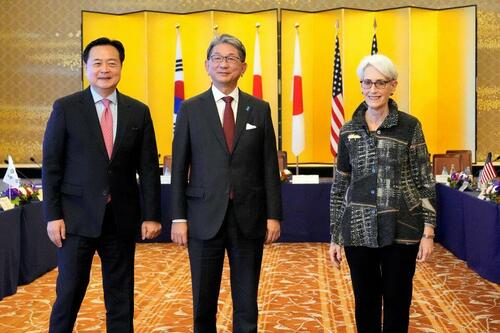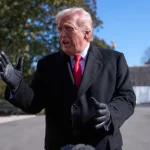
It's a hugely alarming scenario when world leaders and government officials representing nuclear-armed superpowers appear to increasingly be spouting nuclear rhetoric and warnings in an almost casual manner.
US Deputy Secretary of State Wendy Sherman on Tuesday said Washington is ready to protect its Asian allies using nukes if they came under attack, spelling out the US would deploy its "nuclear, conventional and missile defense."

Washington "will use the full range of US defense capabilities to defend our allies, including nuclear, conventional and missile defense capabilities," the deputy secretary told a Tuesday meeting with South Korean and Japanese officials, ahead of a series of talks this week. She hailed America's commitment to defense of Seoul and Tokyo as "ironclad".
The region is currently on edge after early this week South Korea announced that its intelligence concluded Pyongyang has finalized preparations for what will be its first nuclear test in a half-decade. These warnings of an imminent North Korean nuclear test have been growing louder since early August, with the US backing Seoul's assessment.
Sherman in her comments condemned the recent series of ballistic missile launches by North Korea, calling the record number of tests over the course of the year "deeply irresponsible, dangerous, and destabilizing."
One of the more provocative among the latest tests saw a ballistic missile soar over Japan itself. The Asian officials meeting with Sherman in Tokyo agreed that Pyongyang is "creating serious tension on the Korean Peninsula.”
U.S. to cooperate with South Korea, Japan for Taiwan's self-defense - Dep. Secy. of State Wendy Sherman.
— Anthony Kuhn (@akuhnNPRnews) October 26, 2022
I didn't hear Sherman's counterparts second that assertion. Also haven't heard Seoul and Tokyo have policies to provide for Taiwan's self-defense. https://t.co/TgUgpS83As
Patrol ships from the north and south exchanged warning fire along the shared marine-time border on Monday in but the latest sign tensions are at boiling point. The north is meanwhile angry that the US military has in the last month stepped up its presence in waters off the peninsula, while participating in joint military drills with South Korea.
It’s a hugely alarming scenario when world leaders and government officials representing nuclear-armed superpowers appear to increasingly be spouting nuclear rhetoric and warnings in an almost casual manner.
US Deputy Secretary of State Wendy Sherman on Tuesday said Washington is ready to protect its Asian allies using nukes if they came under attack, spelling out the US would deploy its “nuclear, conventional and missile defense.”

Washington “will use the full range of US defense capabilities to defend our allies, including nuclear, conventional and missile defense capabilities,” the deputy secretary told a Tuesday meeting with South Korean and Japanese officials, ahead of a series of talks this week. She hailed America’s commitment to defense of Seoul and Tokyo as “ironclad”.
The region is currently on edge after early this week South Korea announced that its intelligence concluded Pyongyang has finalized preparations for what will be its first nuclear test in a half-decade. These warnings of an imminent North Korean nuclear test have been growing louder since early August, with the US backing Seoul’s assessment.
Sherman in her comments condemned the recent series of ballistic missile launches by North Korea, calling the record number of tests over the course of the year “deeply irresponsible, dangerous, and destabilizing.”
One of the more provocative among the latest tests saw a ballistic missile soar over Japan itself. The Asian officials meeting with Sherman in Tokyo agreed that Pyongyang is “creating serious tension on the Korean Peninsula.”
U.S. to cooperate with South Korea, Japan for Taiwan’s self-defense – Dep. Secy. of State Wendy Sherman.
I didn’t hear Sherman’s counterparts second that assertion. Also haven’t heard Seoul and Tokyo have policies to provide for Taiwan’s self-defense. https://t.co/TgUgpS83As— Anthony Kuhn (@akuhnNPRnews) October 26, 2022
Patrol ships from the north and south exchanged warning fire along the shared marine-time border on Monday in but the latest sign tensions are at boiling point. The north is meanwhile angry that the US military has in the last month stepped up its presence in waters off the peninsula, while participating in joint military drills with South Korea.






